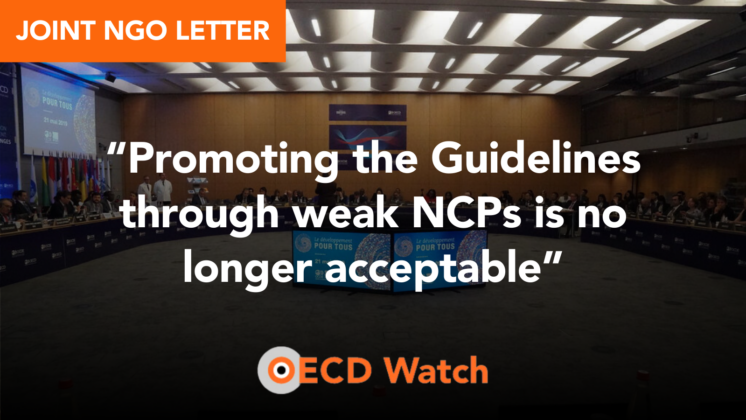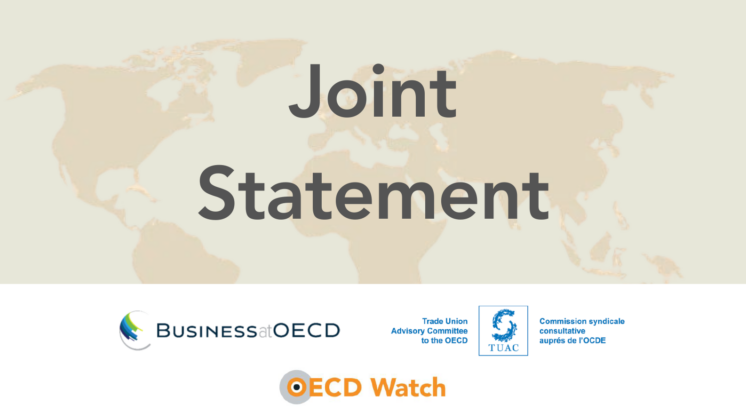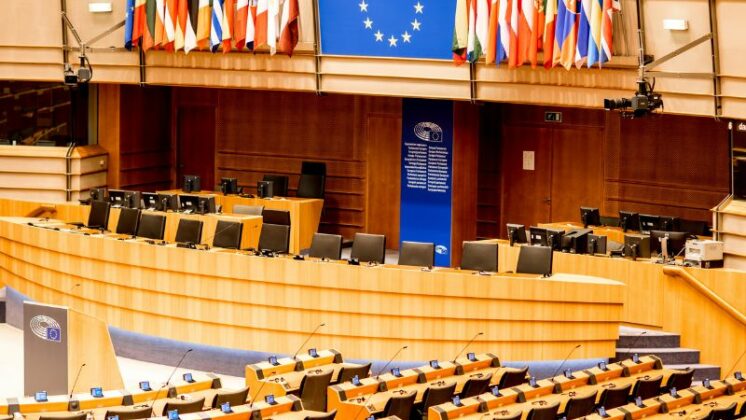The OECD Guidelines for Multinational Enterprises are expectations of adhering countries with regard to responsible behaviour of their multinational corporations on Corporate Social Responsibility (CSR) issues labour and human rights and the environment. The Guidelines are voluntary, companies are not required to abide by them. The closure of an OECD Guidelines case against Shell this week once again reveals that the voluntary nature of the Guidelines and governments’ reluctance to place consequences on breaches of the Guidelines limit the instrument’s authority and ability to influence corporate conduct.
For companies, the OECD Guidelines are voluntary, but not optional. What is the difference? “Voluntary” means not required by law; “not optional” means not without consequences. Under their treaty obligations, governments adhering to the OECD Guidelines are required to ensure that their companies uphold the Guidelines and should thus attach consequences to inobservance of the standards. In practice, however, most adhering governments attach no consequences whatsoever to a breach of the OECD Guidelines, despite the fact that there are many policy tools available to governments to do so. For example, government guarantees and credits for businesses (such as export credit insurance, participation in trade missions, etc) could be made conditional upon observance of the Guidelines in order to encourage compliance.
Although civil society organizations and other interested parties can file complaints with a National Contact Point (NCP) regarding a breach of the OECD Guidelines by a specific multinational, experience shows that doing so has little impact on the behaviour of the company. In 2006, the Friends of Earth, together with Philippine partners, filed a complaint against Shell at the Dutch NCP regarding the health and safety conditions around an oil depot in the middle of the Philippine capital Manila.
For three years, the NCP sought to investigate the matter and attempted to initiate mediation between the parties (mediation is the NCP’s primary task in such a case). These attempts failed because Shell was not willing to participate in any mediation effort on the possible relocation of the oil depot. The Guidelines’ voluntary nature and the Dutch government’s refusal to place consequences on inobservance of the Guidelines mean that the NCP is unfortunately unable to compel companies to take the OECD Guidelines seriously. Shell set unreasonably high confidentiality requirements during the procedure - a situation that the NCP itself found "regrettable" and counterproductive, but was powerless to do anything against. The NCP was forced to close the case without a resolution. Shell has once again shown that it is naive to expect that companies will voluntarily place the good of the society and the environment over their over their own economic interests.
In his response to the NCP’s final statement, Dutch Minister of Economic Affairs Heemskerk praised the NCP’s attempt at mediation that "unfortunately did not work out". The fact that Shell refused to enter into mediation with its stakeholders on the relocation of oil depot, and the fact that the NCP believes that Shell breached the OECD Guidelines with regard to disclosure of non-financial information, including environmental reporting, were given no further attention in the Minister Heemskerk’s response, not to mention consequences for Shell.
The signal that this case thus sends to the Dutch business community is that that compliance with the OECD Guidelines is entirely optional and that non-compliance carries not a single consequence. It is therefore absurd to hope, as does Minister Heemskerk in his response, that this outcome “will lead to enhanced authority and observance of the OECD Guidelines”. An NCP that is unable to even get a company to sit down at the mediation table or drop counterproductive confidentiality requirements is unlikely to be seen as an authoritative or effective solution, especially if companies will in no way suffer consequences if they ignore the NCP process.
Joseph Wilde-Ramsing and Joris Oldenziel are Researchers at the Centre for Research on Multinational Corporations (SOMO) and Coordinators of OECD Watch














